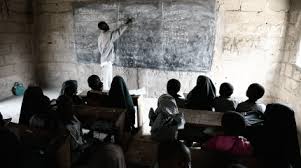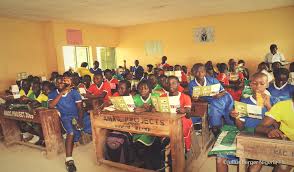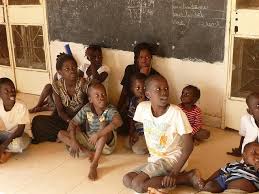West Africa
-
Book Piracy is on the Increase in Nigeria-NPA
- By solomon2day
- On 10/04/2019
- In Special Report
 The Nigerian Publishers Association(NPA) has raised the alarm over the unabating activities of book pirates in Nigeria.
The Nigerian Publishers Association(NPA) has raised the alarm over the unabating activities of book pirates in Nigeria.The NPA made its position known through its Executive Secretary,Mr. Emmanuel Abimbola.
‘’Book piracy is a major problem in Nigeria. Piracy is on the increase, these pirates print abroad and the quality of their work is alarming. We as an association are working with the Nigeria Copyright Commission, to reduce it to the barest minimum. These pirates are not our members, they come from outside. We embark on anti-piracy campaigns to alert the public on the activities of book pirates’’, Mr. Abimbola dislcosed.
-
Nigerians and Their Quest for Affordable Education
- By solomon2day
- On 18/03/2019
- In Solomon's Column
Vital literacy indicators reveal a deplorable condition in the Nigerian educational system.
Indeed, adult literacy rate is embarrassing, while the number of out-of-school children has reached an all time high rate.
Trailing the fallen standard of education at all levels, is the ever increasing rate of drop-outs today.
With particular reference to the Secondary and Tertiary levels of education, cultism, gangster ism and prostitution have become the popular choice for undergraduates and students in educational institutions across the states of the federation.
Shortage of qualified teachers, lack of teaching aids,recreational facilities in schools and basic infrastructure are just a few among the sore points of schools in Nigeria.

Of serious worry are the poor sanitation, overcrowding in class rooms, poor conditions of service for teachers, which has resulted in the poor quality of teaching and poor quality of products, all put together, have become negative signposts of the school environment.
Sadly, poor educational management, a reflection of the poor inter-sectoral allocation, multiplicity of agencies with duplicated functions and inadequate coordination, have all made education administration in most states questionable and fraudulent.
The weak support for education by government at all levels, is a manifestation of the ineptitude of government officials.
 Government’s deliberate neglect in the management of the education sector may eventually result in the total collapse of the public education system.
Government’s deliberate neglect in the management of the education sector may eventually result in the total collapse of the public education system.The shortcomings of government has heightened the stakes for private investors and made the education sector very lucrative.
With the profit motive as the major emphasis and driving force, educational institutions are now germinating like pure water factories in very nook and cranny of Nigeria, while at the same time, such institutions are turning out educationally unacceptable products.
With all these in mind, Nigerians are urgently asking :
- Can government at all levels make education available, relevant, accessible and affordable to all Nigerians ?
- Can government at all levels ensure immediate and long term social and economic returns from education ?
- Are public educational institutions, considering their present state, competent to produce skilled manpower ?
Answers to these questions are in the public domain for everyone to draw conclusions.
-
Court Returns Leased Land to Sierra Leone Community
- By solomon2day
- On 20/11/2018
- In Special Report
A community in Sierra Leone is hopeful that a court ruling which ordered an international palm oil company to return a big block of land to its owners would be a source of empowerment for them to retake control of their land and resources.
In the course of the case the court discovered that the land in Port Loko district, northern Sierra Leone, was leased to a Singapore-based palm oil company, Siva Group, in 2011, but for three years it failed to fulfill its rent obligations to landowners.
In its judgment the court ordered the return of the 41,500 hectares (103,000 acres)to the community and a imposed $250,000 fine.
Lawyers for the case disclosed that this was the first time in the history of Sierra Leone that a community would win back land leased to a foreign company.












